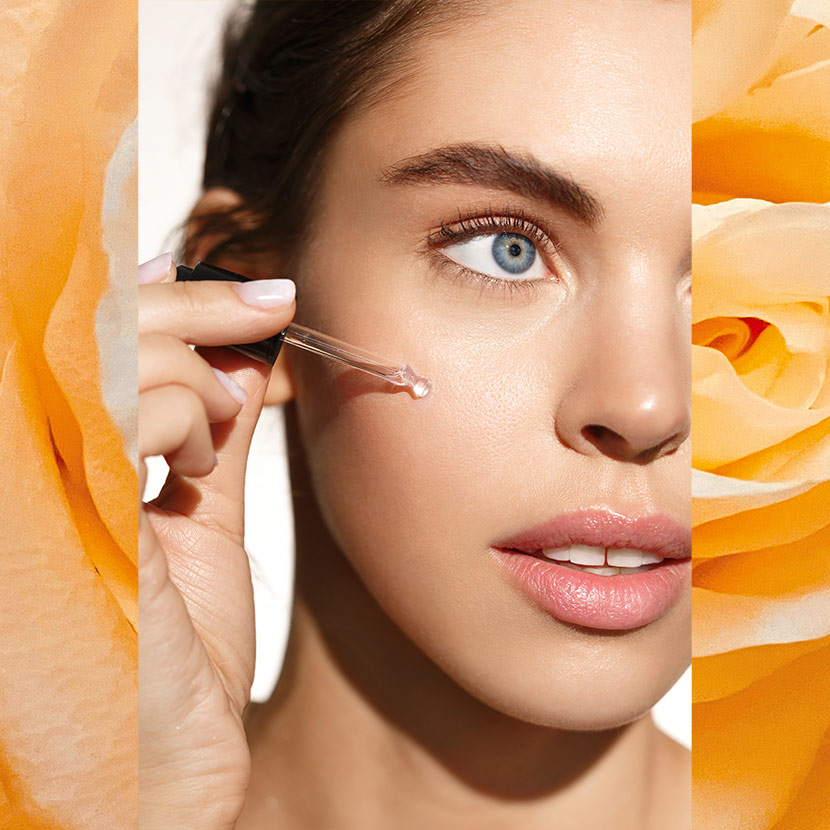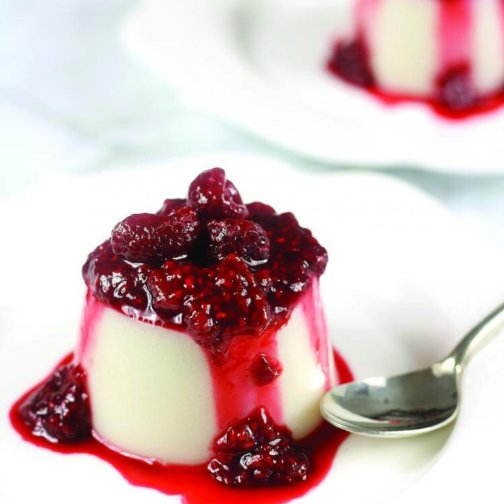
There’s a serum for every skin condition, but which active ingredients do what? This is the guide to vegan and sustainably sourced serums you’ve been waiting for.
Cruise down any skincare aisle and no matter which brand you reach for, you’re likely to find at least one or two serums in the range – brightening, acne relief, exfoliation, plumping fine lines – there’s a serum to address every skin condition. With so many serums, it’s easy to feel overwhelmed, but understanding a few basics will help you choose the best one for your skin.
First things first, why are serums such a big deal? They’re the workhorse of your skincare line-up! This one product packs the most punch and often comes with the highest price tag. That’s because serums are typically more lightweight than moisturisers and usually contain high levels of active ingredients. Adding to their prestige, some serums have sophisticated delivery systems that allow the product to bypass the top layer of skin so they can go on to create the most positive cellular change.
Effective dermal delivery ensures the micronutrients travel easily through the layers of skin and arrive at their intended destination. When properly formulated, serums deliver visible results, and products containing the highest-quality ingredients will stand out above the rest. Let’s learn about the most beneficial active ingredients, plus which skin condition they are best suited for.
VITAMIN A
Perhaps most widely recognised as retinol, years of study have proven this active ingredient to be highly effective. Many dermatologists recommend vitamin A to smooth fine lines, boost collagen production, speed up cell turnover, and control breakouts. Retinol does have some downsides: it’s not recommended during pregnancy or while nursing, it comes in varying strengths and formulations (some of which can cause skin redness and irritation), and it makes skin more photosensitive.
Protecting skin from the sun is imperative when using vitamin A skincare products. It’s also recommended that retinol is only used at night, which decreases the potential for skin sensitivity. Keeping the precautions in mind, adding a high-quality, well-formulated retinol serum to your regime is a strategic way to support your skin function for radiant skin at every age.
VITAMIN C
Another well-studied active ingredient that has stood the test of time is vitamin C. Known primarily for its collagen-building abilities, it also reduces the appearance of hyperpigmentation from sun exposure and prevents future sun damage thanks to its antioxidant properties. Vitamin C is a good choice for your morning skincare routine. Try using a vitamin C serum layered underneath your favourite full-spectrum SPF for superior UV and barrier protection.
The downside of vitamin C is that it’s a challenge for brands to stabilise in skincare products – it’s notorious among cosmetic chemists for the way it oxidises and loses efficacy easily. Reading labels is important when choosing a vitamin C serum because there are so many poorly formulated impostors touting benefits. When in doubt, seek out one made with ‘encapsulated ascorbic acid’, which will ensure the best dermal delivery with the least potential for irritation.
“When properly formulated, serums deliver visible results.”
VITAMIN B3
Also known as niacinamide, this versatile active ingredient is a bit like the Swiss army knife of topical ingredients because it offers benefits for a wide range of skin conditions, including acne, rosacea, sun damage, and skin irritations such as eczema and atopic dermatitis. Vitamin B3 is also a wonderful anti-inflammatory companion for those regularly spending time in the sun because
it has the capability to revitalise cells after exposure to UV light and replenish the skin’s barrier function. If your skin is feeling wind chapped, sun scorched, or in need of extra skin soothing, generously slather on serums containing vitamin B3 morning and night.
BETA HYDROXY ACIDS (BHAS)
There are many ways to exfoliate, but for oily skin that is prone to breakouts, beta hydroxy acids may be the best. That’s because BHAs are oil-soluble chemical exfoliants that travel deep down into the pores to clear build-up and curb breakouts. Salicylic acid is the standout beta hydroxy acid; it occurs naturally in willow bark extract, and offers exfoliating and skin-rejuvenation benefits with less chance of redness or sensitivity compared to synthetic salicylic acid. Willow bark extract is safe to use daily and is an excellent skin-clearing choice for active breakouts.
ALPHA HYDROXY ACIDS (AHAS)
Alpha hydroxy acids are a skincare mainstay for their ability to buff away dead skin cells, even out skin texture, brighten hyperpigmentation, and increase skin permeability. Of these water-soluble chemical exfoliants, the most widely used in topical skincare formulations is glycolic acid, often derived from sugarcane or lactic acid which is historically derived from milk – but most brands now opt for the equally beneficial vegan synthetic alternative. If lactic acid sourcing is not clearly stated in the ingredients, it’s a good idea to send the brand an email to enquire whether or not it’s vegan-friendly. Safe for all skin types, this group of exfoliating acids chemically dissolves dead skin build-up.
If you’re the sensitive type or have been diagnosed with rosacea, you may feel inclined to shy away from acids, but in fact, gentle AHAs may be the wiser exfoliation choice for your skin. By comparison, granular exfoliants, like face scrubs, are sometimes more abrasive and can exacerbate skin irritation. However, it’s best to skip all types of exfoliation if you have a sunburn or are experiencing an eczema flare-up.
HYALURONIC ACID (HA)
Most of the time when we hear acid, we think of exfoliation. While BHAs and AHAs do increase the shedding of dead skin cells, hyaluronic acid (although it shares a similar name) is in a category of its own. The main function of hyaluronic acid is not to exfoliate skin but to deliver hydration. It’s a humectant, which means it has the remarkable ability to absorb moisture from the outside air
– able to attract and retain almost 1,000 times its weight in water! What does this mean for your skin? Radiant, dewy hydration, plus instant improvement in the appearance of fine lines and wrinkles, which often look more pronounced if skin is dehydrated. Hyaluronic acid is an active-ingredient all-star because it’s appropriate for all skin types, with low potential side effects.
Your skin is always communicating, and what it needs will change from time to time. It’s important not to slip into a cookie-cutter one-size-fits-all mindset regarding your skincare routine. Remember, what works for your best friend or your favourite beauty blogger may not be suitable for your skin. Thankfully, there are vegan, sustainably sourced serum options for every skin type or imbalance. While not exhaustive, this guide will be a great starting point for choosing which serums your skin is craving most. In the same way that we eat many different foods containing a multitude of nutrients for vibrant health, our skin also responds well to a layered multi-ingredient approach.
Mix and match these powerhouse active ingredients to build a skincare ritual that is uniquely yours!





















